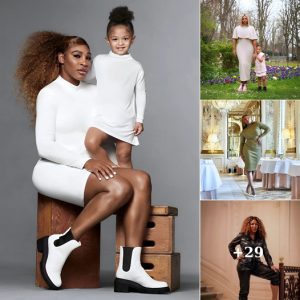The Importance of Family for Mike Tyson: A Personal Perspective

The story of Mike Tyson, a name synonymous with formidable prowess in the boxing ring, is as much a tale of personal transformation as it is of athletic accomplishment. Central to this narrative is the role of family – an aspect that has profoundly shaped Tyson’s life and career, offering a window into the heart of a man often misunderstood and misrepresented.
The Early Years: A Foundation Shaken
Mike Tyson’s early life in Brooklyn was marked by turbulence and hardship. Born into a world where stability was a stranger, young Tyson faced the brunt of a broken home and the harsh realities of an inner-city environment. His biological father’s absence and his mother’s struggles painted a picture of familial instability. This early experience with family, or rather the lack of it, set the stage for Tyson’s tumultuous journey ahead.

In these formative years, Tyson’s conception of family was not one of warmth and security but of absence and uncertainty. It’s crucial to understand how these early experiences with family—or the lack thereof—shaped the Tyson we came to know in the ring: fierce, unrelenting, and seemingly unanchored.
Cus D’Amato: A Surrogate Father

The turning point in Tyson’s life came with the entrance of Cus D’Amato, a legendary boxing trainer. D’Amato did not just see a future heavyweight champion in Tyson; he saw a lost young man in dire need of guidance and care. In D’Amato, Tyson found more than a trainer; he found a father figure, a mentor who provided the structure and support missing from his early life.
Under D’Amato’s tutelage, Tyson not only honed his skills as a boxer but also found a semblance of the family he never had. D’Amato’s strict discipline, coupled with unconditional support, was a new kind of familial experience for Tyson. It was through this relationship that Tyson began to understand the value of trust, respect, and emotional connection—elements central to the concept of family.
The Rollercoaster of Fame and Family
As Tyson’s fame skyrocketed, so did his challenges. The world of professional boxing brought immense wealth and acclaim, but it also came with its own set of trials, particularly in the realm of personal relationships. Tyson’s marriages and relationships were highly publicized and often tumultuous, reflecting a continuing struggle with the concept of family and stability.
In these years, Tyson’s understanding and experience of family continued to evolve. His marriages, though fraught with challenges, were attempts to create the stable family unit he never had. The birth of his children added a new dimension to his understanding of family, embedding a sense of responsibility and a desire for stability that had been absent in his own childhood.
The Latter Years: Reflection and Reformation
In recent years, Tyson’s perspective on family has taken a more introspective turn. Through retrospection, Tyson has come to appreciate the impact of his upbringing on his life choices and behavior. This self-awareness brought a new understanding of the importance of family, not just as a support system but as a foundational element for personal growth and stability.
Today, Tyson speaks candidly about his past mistakes, his struggles with mental health, and the importance of family in his journey towards healing and transformation. He has become an advocate for mental health awareness, drawing from his own experiences to help others. His relationship with his children reflects his growth, showcasing a more nurturing and stable side, starkly different from the volatile figure of his youth.
Conclusion: The Ever-Evolving Concept of Family
Mike Tyson’s life story is a poignant reminder of the transformative power of family. From a childhood marked by its absence to an adulthood where its importance became ever more evident, Tyson’s journey is a testament to the role of family in shaping, challenging, and ultimately healing us.

In Tyson’s narrative, family emerges not just as a biological or social unit but as a dynamic and evolving concept. It encompasses the traditional elements of kinship and extends to mentorship, emotional bonds, and self-realization. Tyson’s journey with family—fraught with challenges, yet rich in learning—offers a unique perspective on the complexities and indispensability of this fundamental social unit.





